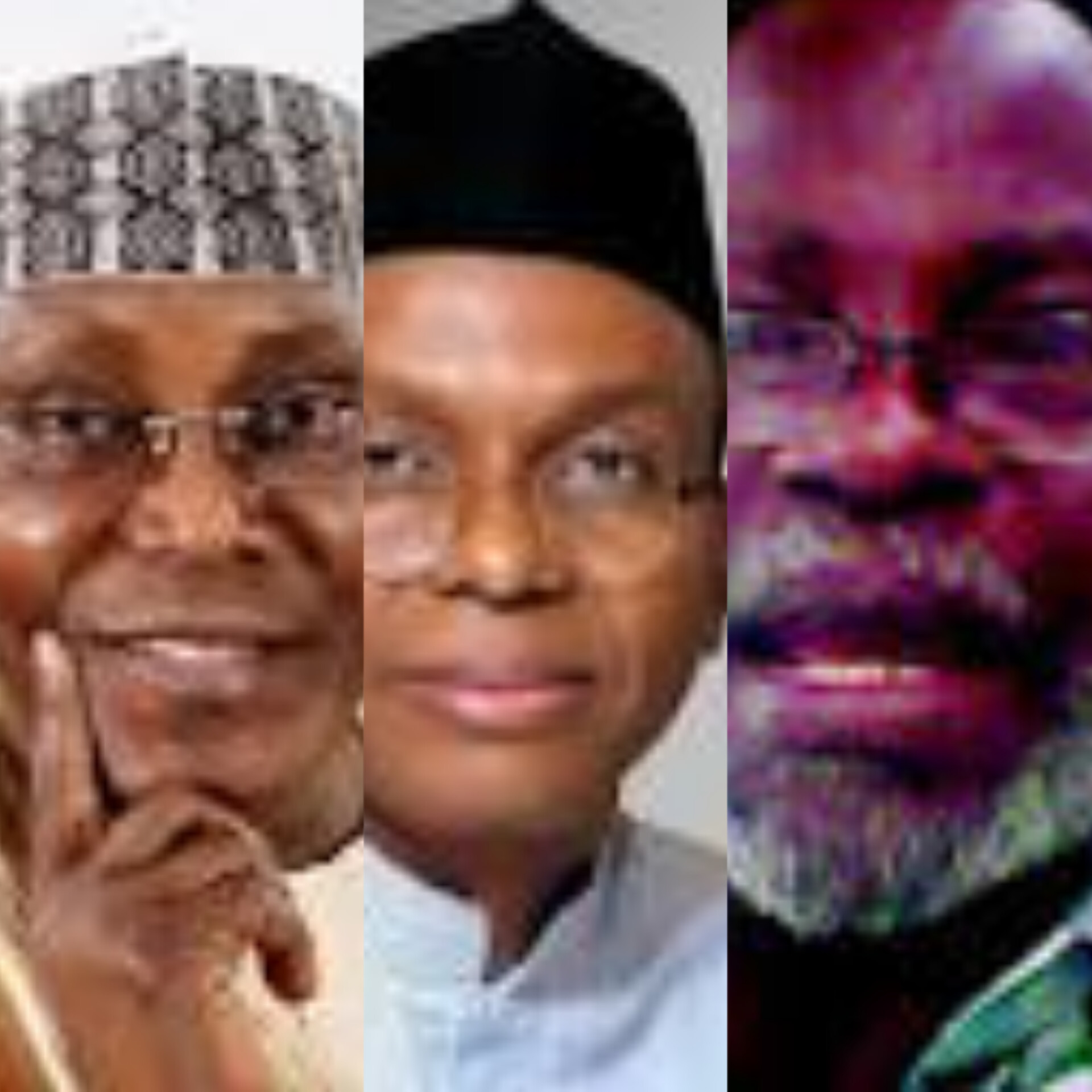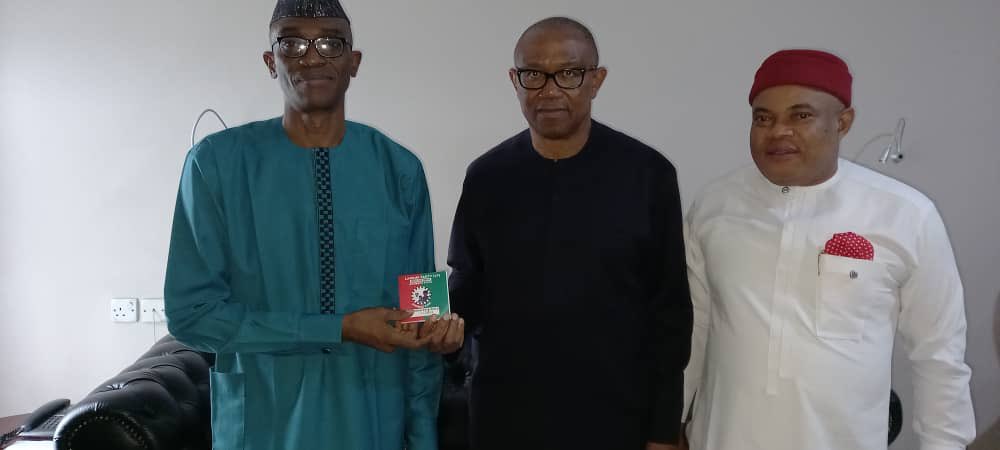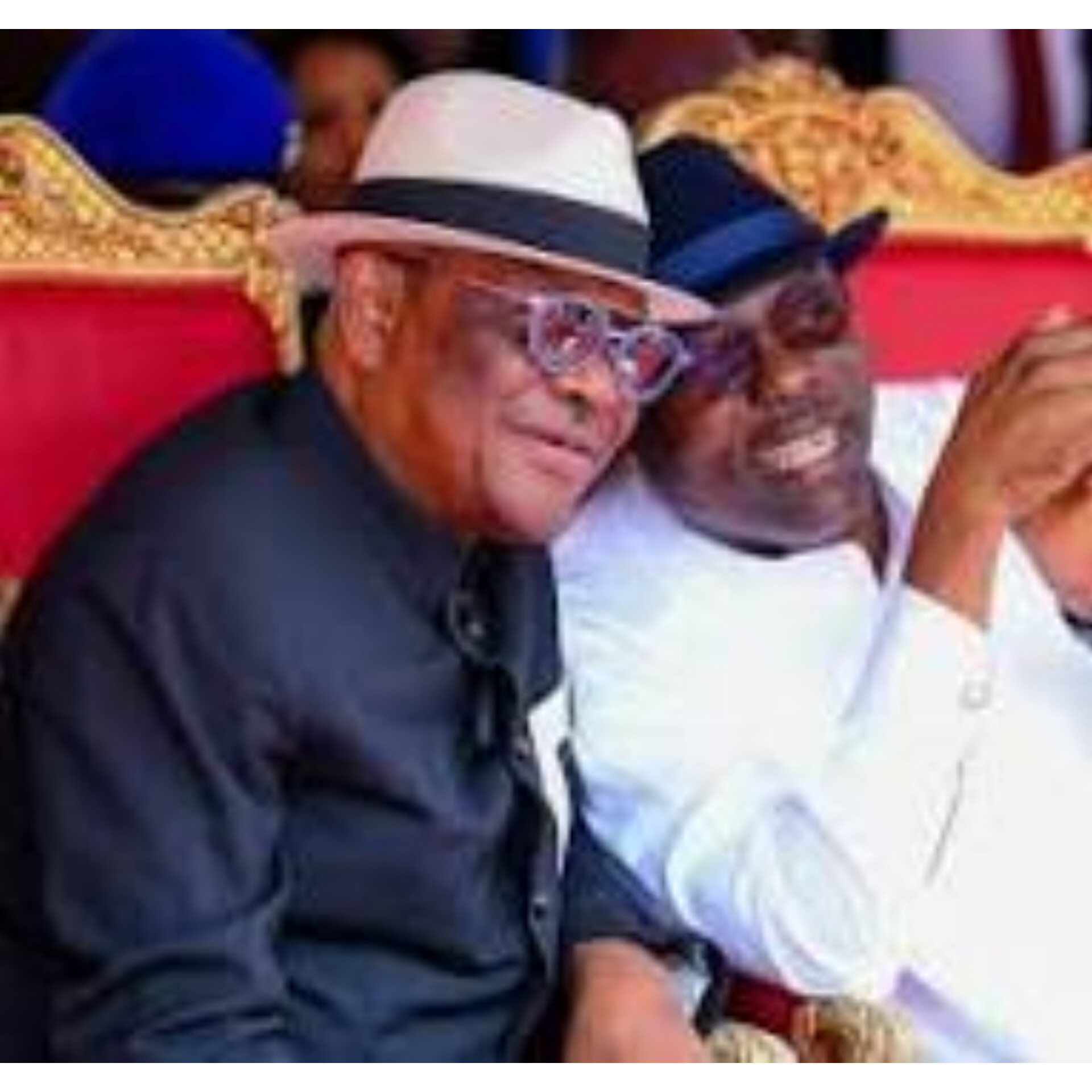By Tunde Olusunle
Scholars are divided over what the most appropriate description and perception of Esu in Yoruba cosmology should be. The more widely held notion about Esu, is to make it the lexical parallel of Satan or the devil, in the English language. Esu within this context, connotes evil and devilry in all its ramifications. He is the purveyor and conveyor of wickedness, mischief, anguish, grief, even negativity in totality. Esu in popular perception, is mean-spirited, malevolent, devious, vile. The list goes on. This dimension to the Esu persona, considered as a “most controversial mixup” by some scholars, has been ascribed to his portrayal by Ajayi Crowther, the iconic linguist and Emeritus pioneer African Bishop of the Anglican Church. Crowther translated the Bible into Yoruba and also translated Yoruba into English. It has been posited that Crowther, in the dictionary, translated Satan as Esu. Unfortunately, as Christianity and Islam replaced African Traditional Religion, (ATR), the reference to Esu as Satan, gained ascendancy, following Crowther’s precedence.
Yoruba mythology, however, admits Esu as one of the Orishas, mediums and intermediaries between man and Eledumare, God in the Yoruba pantheon. Affiliate Orishas include Ogun, Sango, Obatala, Esu, Obatala, Osun, among several others. But even this classification confers some ambivalence on the essential constitution and endeavours of the archetypal Esu. He is said to be a benevolent spirit who serves Ifa, the oracle who divines the future. He takes sacrifices through him to Eledumare, and brings his commands to men. He acts under his orders and punishes the wicked on his Principal’s behalf. Esu, however, is a multivalent medium, dreaded in his own right, for the vengeful mischief he can perpetrate. In this capacity, he is Esu Odara or Esu Elegbara, the unsparing evildoer.

It is necessary to lay this foundation against the backdrop of the quantum disinformation, misrepresentation, fables, falsehoods serially perpetrated against Atiku Abubakar, Nigeria’s First Vice President, in the subsisting Fourth Republic. Atiku has been repeatedly profiled for unsubstantiated malfeasance, unsustainable grabbism, primitive acquisition, vandalistic comsumptiveness, and similar labels. Atiku is the hardworking, high-flying presidential flagbearer of the major opposition political party, the Peoples’ Democratic Party, (PDP), who is staking a formidable, full-chested claim to succeed the incumbent, Muhammadu Buhari. This is Atiku’s fifth shot at the presidency and one in which he is very highly favoured to win deservedly. It has indeed been advanced that he won the 2019 election, by independent forensic accounts.
The respected public engager, scholar and professor Udenta Udenta, indeed advanced in a recent television interview, that Atiku ticks all the boxes in terms of his several attributes, competencies and capacities for the nation’s top job. His words: “The most suitable President Nigeria needs now is someone with a sense of urgency, who is ready in terms of preparation, someone who is fully aware of national expectations. Every candidate comes with some bag, not just of expectations, but talent, assets and skill sets… Atiku Abubakar has been devoted to this quest for long. And for somebody to be devoted in his lifetime, almost the entirety of his adulthood
in pursuit of a dream, means there is something deep in his heart that he wants to give the country. He gave part of it as vice president for eight years, effectively for four years because the second term was very turbulent with his boss.”
Udenta is not emotional about the originating address of Nigeria’s next president. He is objective enough to speak from his own dispassionate interrogation of the country’s sociopolitical situation. He continues therefore by submitting as follows: “Atiku’s undying passion to lead Nigeria, actually means he has the staying power, in terms of persistence, which is very key to unlock the potentials of the nation. And being a vice president for the first term when the country was practically cut adrift from the international community, to restore the country back to the comity of nations with a sense of mission and purpose, I think he did very well. Whether as informal leader of the economic team or someone the president relied on so much to drive the government’s economic agenda, he seems to be best suited for the moment, in terms of who has the adequacy of experience and exposure and the network to get things done.”
The unfortunate narrative out there in the public sphere about Atiku, however, is of one whose hands are soiled in the lucre of state assets and resources, appropriated to self and cronies, while he was in office. These fabrications preclude the fact that Atiku, by his responsibilities as vice president, as spelt-out in the 1999 Constitution of the Federal Republic, was actually and practically, severely constrained. The office and position, is an appendage to a president, and a strong one at that in Olusegun Obasanjo, on whose desk the buck stopped. Convoluted street talk in places, is of a man who desires the presidency as a personal laurel for the prosecution of an agenda for self-enrichment and personal aggrandisement.
Phantom figures have been concocted in relation to the manner of giveaways Atiku made of some highly prized national assets, under his watch as Chairman of the National Council for Privatisation, (NCP). The Ajaokuta Steel Complex in Kogi State; the National Aluminium Smelting Plant, Ikot-Abasi and the Nigeria Newsprint Manufacturing Company, Oku-Iboku, both located in Akwa Ibom State, among others, were allegedly auctioned to Atiku’s imaginary associates, going by the thread of these conjectures. Yet, government’s legally constituted agency entrusted with the responsibility of disposal of the assets was the Bureau for Public Enterprises, (BPE). Nasir El-Rufai, outgoing governor of Kaduna State, was the Director-General and Chief Executive.
Every electoral cycle, so long as Atiku is on the ballot, these tales are recycled and fed into our ears. Yet Atiku has serially submitted himself to public inquisition to authenticate the veracity of the unfounded aspersions regularly cast on him. Till date, none, out of the Code of Conduct Bureau, (CCB), the Economic and Financial Crimes Commission, (EFFC), or the Independent Corrupt Practices Commission, (ICPC), have invited Atiku for a chat since he lost his immunity 17 years ago! Atiku has always desired to be clinically examined. He is in “a townhall, different from” the balablu blublu bulaba of his major challenger Bola Ahmed Tinubu, of the All Progressives Congress, (APC), on this score. Tinubu, reportedly, has held his affluent state in his pocket and his vice grip into its 24th consecutive year! He is the ultimate, a godlike figure, the chess-master who determines if his constituents breathe or not. He actually wants to sneak into Aso Villa without facing the minimum request and expectation of Nigerians, for his participation in a question and answer engagement. As I type this, the social media is abuzz with a picture of Tinubu sleeping and snoring away, at a meeting of party leaders and presidential candidates, with the National Peace Committee, (NPC), in Abuja. Abdullahi Adamu, Chairman of Tinubu’s APC, participated on his behalf.
In an old short video clip dated August 11, 2011, which is making the rounds, El Rufai dismisses reports and allegations of Atiku’s interference or complicity in any form, with the privatisation exercise. According to him: “I swear to God, I am under oath, except for one time the vice president called me and said: Look, I’ve got calls from A and B requesting we help this guy win this. And I said: “Mr Vice President, you know the rules. Tell the guy to bid the highest price, because the highest price wins. And he said I know, in case they contact you, I don’t want them to say I didn’t pass on their message. That was the only time. Nobody tried to interfere with my work.” This is very germane to our thesis in this piece, about the eventual vindication of the much maligned Esu Odara.
Nigerians will yet come to appreciate the single-minded commitment to, and pursuit of rule of law and due process in governance and party administration, of Atiku Abubakar. This is the kernel of the negative and revisionist stereotypes that have been encased around him. Like Udenta noted in a section of his interview cited above, Atiku truly had a bumpy second term with his Principal, Olusegun Obasanjo. There was indeed a concerted attempt to unlawfully remove him from office in that government. The beef between Atiku and Obasanjo, we are told, derived largely from Obasanjo’s desire to contest for a third term in office. Atiku is said to have cautioned against any form of constitutional breach. Atiku we are told, reminded Obasanjo on that occasion, that since both of them were inaugurated the same day, they should disengage from office on the same day. Atiku indeed requested Obasanjo to support him as his successor so he could consolidate on whatever foundations they had both laid.
Defying his constitutional immunity as a sitting vice president, Atiku hosted a three-man “Board of Inquiry,” (BOI), made up of three serving ministers in that government, emplaced by by his boss. They asked him to show cause why he should not be unseated, brandishing a “charge sheet” of simulated breaches. Atiku, a due process adherent, resisted the move and challenged it all the way to the Supreme Court and won. Maxwell Gidado, SAN, (now Chief of Staff to the Adamawa State governor, Ahmadu Fintiri) and Chudi Ojukwu, LLM, co-edited an authoritative compendium on the Atiku litigations in the quest for justice. Titled Landmark Constitutional Law Cases In Nigeria: 2004-2007: The Atiku Abubakar Cases, it was first published in 2013. The 300-page book is “in memory of the late General Shehu Musa Yar’Adua and others who died for the cause of democracy and constitutionalism in Nigeria.” The book is a must-read for genuine lovers of democracy, justice and rule of law.
The serving aviation minister at the time, at the very climax of the fiesty acrimony between Obasanjo and Atiku, by accounts, dropped a bomb, during a meeting of the Federal Executive Council, (FEC). We are informed he averred that Atiku should be barred from attending or participating in FEC meetings! This was an unelected appointee of the Obasanjo/Atiku ticket attempting to humiliate the Vice President in public. Atiku was in attendance, we are also apprised, by the way. It emerged that that minister was prompted by the President to fly the kite. There was eerie silence thereafter, we are briefed. The president, read the unpopularity of his subterfuge and moved on to other issues on the agenda paper.
Here therefore lies the reality of the relentlessly wrong, cruel and misleading depiction of Atiku Abubakar as a devil reincarnate, the essential Esu Odara, which in truth is unsustainable. Or how do we corroborate his recurrent demonisation, with the many positive inventions and initiatives he brought forth, towards the success of his erstwhile Principal and their joint ticket? Who headhunted El Rufai, a first class degree holder in quantity surveying from the Ahmadu Bello University, (ABU) and convinced him to serve in the Obasanjo/Atiku administration? Arguably, El Rufai has been one of the bright lights of the Fourth Republic, whose imprimatur is to be found everywhere he has treaded. Who discovered Chukwuma Soludo, governor of Anambra State, a first class economist? His landmark consolidation of banks and financial institutions, has been one of the most perspicacious achievements of this democratic milieu.
Did we listen to the recent testimony of Akinwumi Adesina, a first class degree holder in agricultural economics and former agriculture minister, the incumbent President of the African Development Bank, (AfDB), about Atiku? He noted in a public lecture, that Atiku is a “destiny enabler.” Atiku held his hands and flew him in his private jet, (Atiku’s airplane), from Abuja to Cape Town, in 2015. This was before the inauguration of the Buhari government. Atiku took him to seek former President Jacob Zuma’s endorsement of Adesina’s bid for the AfDB presidency. Nigeria and South Africa are very key members of the ownership structure of the AfDB. Atiku and Zuma have had a blossoming relationship, since their days as vice presidents to Obasanjo and Thabo Mbeki. Atiku was a private citizen at that time and remains one. But here is a global citizen, the foremost bridge builder, whose tentacles traverse the infinite span of the world. Fortuitously, Tinubu was on that Atiku-Adesina shuttle to South Africa and witnessed first hand, the bonhomie and camaraderie between Atiku and Zuma.
Very instructively El Rufai, Soludo and Adesina trained locally in Nigerian universities, notably: ABU, University of Nigeria Nsukka, (UNN), and the University of Ife, (Unife) which has been rechristened Obafemi Awolowo University, (OAU), respectively. They each represent Nigeria’s three major ethnic groups: the Hausa/Fulani, Igbo and Yoruba. This speaks volumes about Atiku’s cosmopolitanism and confidence in the broad-spectrum intellectual and technocratic assets of Nigeria and the country’s homegrown quality. Atiku was not interested in the religious or ethnic backgrounds of these juggernauts before embracing them. He has tremendous capacity to appreciate and encourage scholarship and professionalism. Atiku’s over-arching global goodwill, among other endowments and qualities earlier enunciated by Udenta Udenta, recommend him as Nigeria’s most preferred, come Saturday February 25, 2023.
Tunde Olusunle, PhD, poet, journalist, scholar and author, is Special Adviser, Media and Publicity to PDP presidential candidate Atiku Abubakar, GCON




